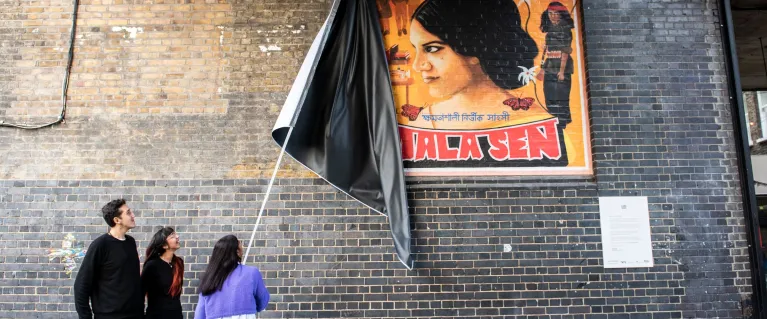
Case study: Delivering equity in grant making
This case study is aimed at funders, including public sector organisations, funding agencies, trusts and foundations.
Summary
Making the application process equitable was a key consideration when designing the GLA’s £1m Untold Stories fund, part of the Commission for Diversity in the Public Realm.
The fund helps communities test, develop, create and grow projects that share their community’s stories with the city.
The GLA worked with inclusion partners Ubele Initiative, the Women’s Resource Centre and LGBT Consortium, which extended the fund’s reach. The inclusion partners helped the GLA by tapping into new networks and providing practical support on completing applications.
Challenge
The design of funding applications and grant management can vary greatly between funders. Requirements can be onerous and are not always proportionate to the funding amount, or to the risk that funding may not deliver the expected outcomes.
Smaller volunteer-led organisations, without access to professional fundraising capacity, are likely to find it particularly challenging to access funding if application and grant-management processes are burdensome. This may entrench existing barriers and inequalities in access to funding.
The GLA’s Untold Stories fund, part of the Commission for Diversity in the Public Realm, aimed to make the many untold histories, stories and experiences of Londoners from diverse backgrounds visible and represented within the public realm.
The fund supported communities to make a change in public spaces – whether this was creating something new, highlighting something missing or hidden, or presenting a different story to what already exists.
Aim
The GLA wanted to make the fund accessible to all communities, so that those whose stories are not currently told in the public realm could successfully apply and achieve change.
Action
The GLA team worked with inclusion partners Ubele Initiative, Women’s Resource Centre and LGBT Consortium to deliver the funding application and grant management processes. Collectively the team and inclusion partners:
-
offered 115 bookable online one-to-one conversations with a member of the team to get specific project advice
-
ran 53 workshops attended by nearly 1,000 participants to provide information about the fund
-
encouraged applications in accessible formats, recognising that written applications can be a barrier for some
-
issued the grant prospectus in different formats, including BSL video, audio, and easy read
-
created an access fund during the application stage, so that those with additional access requirements could draw on support to understand the guidance and complete the application, including BSL interpreters and support workers
-
created a dedicated fund for projects led by or involving Londoners with additional access requirements, so that they could apply for an additional £2,000 above the maximum grant threshold to fund personal access costs without having to fund this from the main grant.
Impact
The Untold Stories fund design has received positive feedback from organisations about the accessibility of the fund and how they felt encouraged to apply rather than face barriers – including from organisations who ultimately chose not to apply.
Other funds within and outside the GLA have picked up the approach, by introducing a wider range of accessible application formats and access grants to remove barriers for those with extra access requirements.
The funding design led to grant allocations being more reflective of London’s diverse communities, with:
- 66 per cent of the fund value going to organisations led by Black, Asian and minority ethnic Londoners
- 19 per cent going to LGBTQ+-led organisations
- 73 per cent going to women-led organisations.
Next steps for you
-
Review how you currently design your funding application and grant-management processes, and whether they achieve equitable access.
-
Work with trusted organisations that know your target audience to co-design the processes.
-
Learn more about how funders in London are coming together to create a fairer and more equitable funding system.
If you would like to find out more, please email [email protected].
Need a document on this page in an accessible format?
If you use assistive technology (such as a screen reader) and need a version of a PDF or other document on this page in a more accessible format, please get in touch via our online form and tell us which format you need.
It will also help us if you tell us which assistive technology you use. We’ll consider your request and get back to you in 5 working days.